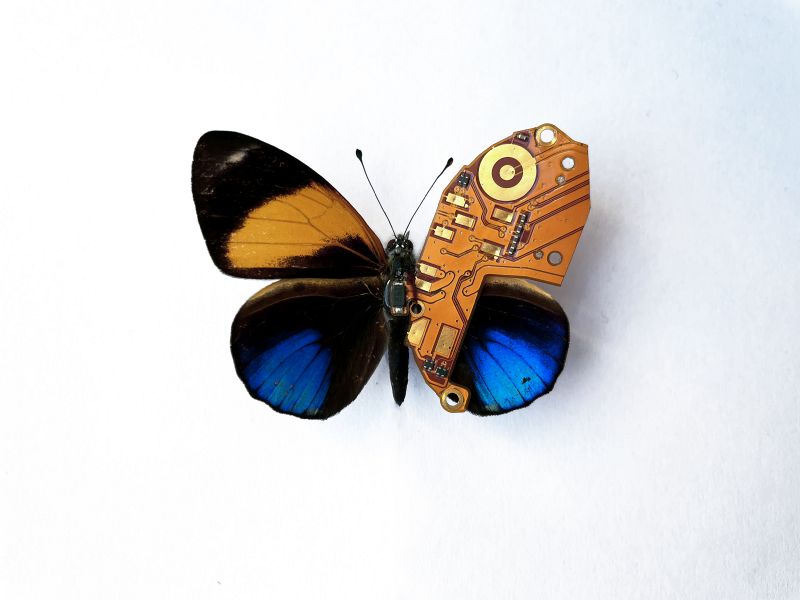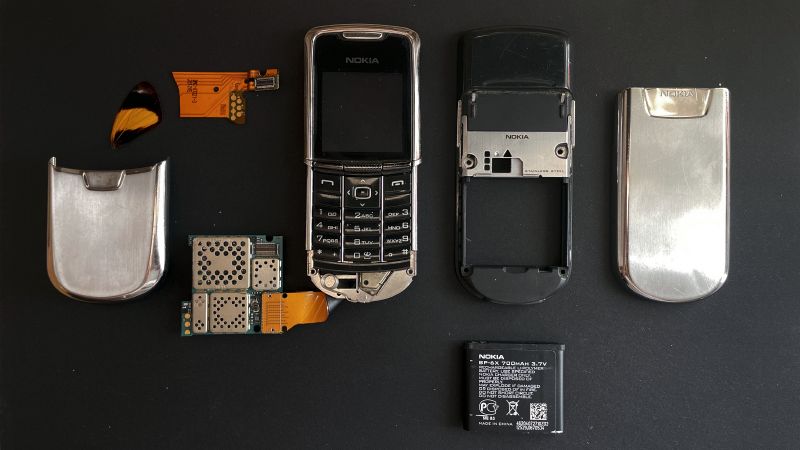GMU:Printed Circuit Board Art/mxkllmnn (side project): Difference between revisions
From Medien Wiki
No edit summary |
mNo edit summary |
||
| (4 intermediate revisions by the same user not shown) | |||
| Line 1: | Line 1: | ||
The Cyborg series started back in 2015 with the first piece (Cyborg I) being a migratory locust that got a new leg out of a safety pin after I dropped the original preparation. When I got to know about super-thin PCBs, the idea of the Butterfly came to my mind. Also, | [[File:ButterflyPCB.jpg|800px]] | ||
The Cyborg series started back in 2015 with the first piece (Cyborg I) being a migratory locust that got a new leg out of a safety pin after I dropped the original preparation. When I got to know about super-thin PCBs during this course, the idea of the Butterfly came to my mind. Also, I was the lucky owner of a Nokia 8800 back in the days, which has a rather sophisticated sliding mechanism that required such flex PCBs. Putting things together, now there is another Cyborg. | |||
[[File:Nokia8800.jpg|800px]] | [[File:Nokia8800.jpg|800px]] | ||
Latest revision as of 19:02, 9 March 2022
The Cyborg series started back in 2015 with the first piece (Cyborg I) being a migratory locust that got a new leg out of a safety pin after I dropped the original preparation. When I got to know about super-thin PCBs during this course, the idea of the Butterfly came to my mind. Also, I was the lucky owner of a Nokia 8800 back in the days, which has a rather sophisticated sliding mechanism that required such flex PCBs. Putting things together, now there is another Cyborg.

